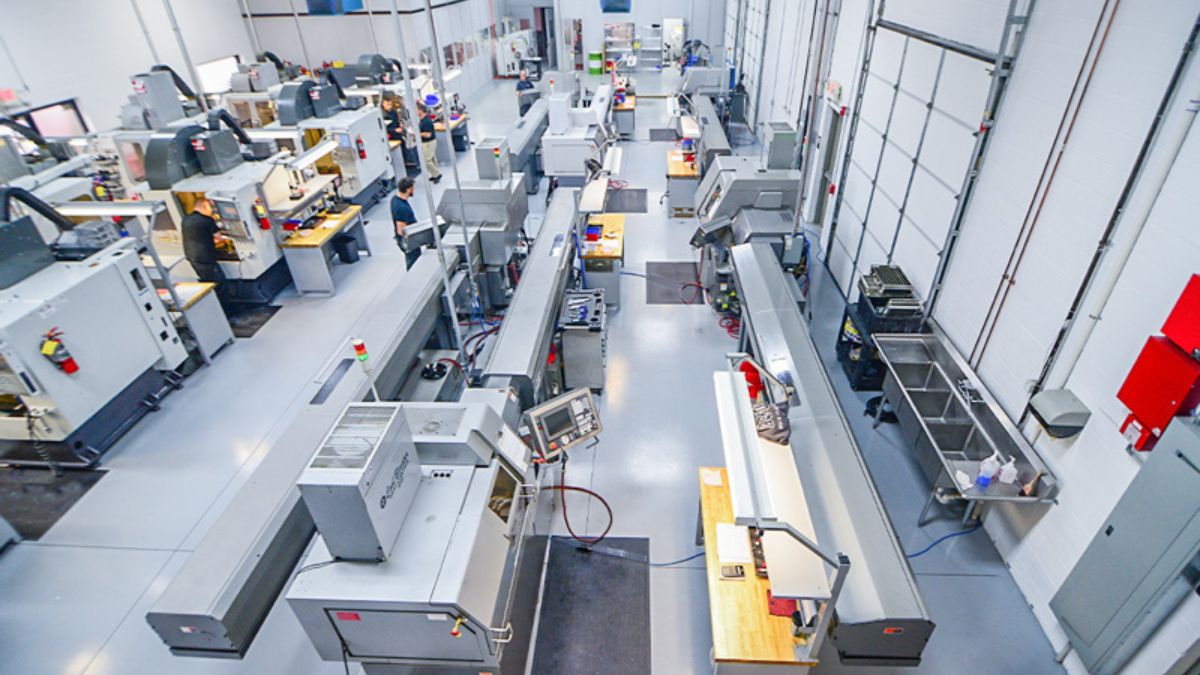The manufacturing landscape has undergone dramatic transformation over the past few decades, with precision technologies emerging as the cornerstone of modern industrial operations. Companies worldwide are discovering that investing in high-precision equipment and advanced manufacturing processes isn’t just an option—it’s essential for staying competitive in an increasingly demanding marketplace.
Precision Technologies International represents a new breed of manufacturing companies that have embraced this shift wholeheartedly. By combining cutting-edge technology with decades of industry expertise, these organizations are setting new standards for quality, efficiency, and innovation across multiple sectors. From aerospace components that must meet exacting tolerances to medical devices where precision can be a matter of life and death, the impact of precision manufacturing extends far beyond the factory floor.
Understanding how precision technologies are reshaping international manufacturing provides valuable insights into where the industry is headed and what opportunities lie ahead for businesses ready to embrace these advancements.
The Evolution of Precision Manufacturing
Manufacturing precision has evolved from basic mechanical processes to sophisticated computer-controlled systems that can achieve tolerances measured in micrometers. Traditional manufacturing methods, while still valuable, simply cannot match the consistency and accuracy that modern precision technologies deliver.
Computer Numerical Control (CNC) machining represents one of the most significant advances in precision manufacturing. These systems can produce identical parts with minimal variation, reducing waste and improving overall product quality. Multi-axis CNC machines now allow manufacturers to create complex geometries that would have been impossible or prohibitively expensive using conventional methods.
Additive manufacturing, commonly known as 3D printing, has further expanded the possibilities for precision production. While initially limited to prototyping applications, industrial-grade additive manufacturing systems now produce functional parts for aerospace, automotive, and medical applications with remarkable precision and repeatability.
Key Technologies Driving International Precision Manufacturing
Advanced Metrology and Quality Control
Modern precision manufacturing relies heavily on sophisticated measurement and inspection technologies. Coordinate Measuring Machines (CMMs) provide three-dimensional measurements with incredible accuracy, ensuring that manufactured parts meet exact specifications. Optical measurement systems use laser technology to capture detailed surface information, enabling quality control processes that were unimaginable just a few years ago.
Real-time monitoring systems continuously track manufacturing processes, identifying potential issues before they result in defective parts. This proactive approach to quality control significantly reduces waste and improves overall efficiency.
Automation and Robotics Integration
Precision manufacturing increasingly depends on automated systems that can perform repetitive tasks with consistent accuracy. Industrial robots equipped with advanced sensors can handle delicate components while maintaining the precise positioning required for high-quality assembly operations.
Collaborative robots, or “cobots,” work alongside human operators to combine the flexibility of human decision-making with the precision and endurance of automated systems. This hybrid approach often delivers the best results for complex manufacturing processes.
Materials Science Innovations
The development of advanced materials has opened new possibilities for precision manufacturing. High-performance alloys, ceramic composites, and engineered polymers offer unique properties that enable the creation of components with superior performance characteristics.
These materials often require specialized processing techniques, driving innovation in manufacturing equipment and processes. Companies that can effectively work with these advanced materials gain significant competitive advantages in high-value markets.
Global Market Impact and Applications
Precision technologies have found applications across virtually every industry, with particularly strong growth in sectors where quality and reliability are paramount.
Aerospace and Defense
The aerospace industry demands components that meet extremely tight tolerances while maintaining exceptional reliability. Precision manufacturing technologies enable the production of engine components, structural elements, and electronic systems that can withstand the harsh conditions of flight while meeting strict safety requirements.
International aerospace manufacturers increasingly rely on precision technology suppliers to deliver components that meet global certification standards. This trend has created opportunities for precision manufacturing companies to expand their operations internationally.
Medical Device Manufacturing
Medical devices require precision manufacturing to ensure patient safety and treatment effectiveness. From surgical instruments to implantable devices, precision technologies enable the production of medical equipment that meets stringent regulatory requirements while delivering consistent performance.
The growing global healthcare market presents significant opportunities for precision manufacturing companies that can demonstrate compliance with international quality standards and regulatory requirements.
Automotive Industry Transformation
The automotive industry’s shift toward electric vehicles and autonomous driving systems has created new demands for precision manufacturing. Battery systems, electronic control units, and sensor assemblies all require manufacturing processes that can deliver consistent quality at high volumes.
International automotive manufacturers are establishing global supply chains that depend on precision technology suppliers who can meet their quality standards regardless of geographic location.
Challenges and Opportunities in International Markets
Supply Chain Complexity
Operating in international markets presents unique challenges for precision manufacturing companies. Supply chain disruptions can have severe impacts when manufacturing processes require specialized materials or components with long lead times.
Successful international precision manufacturing companies develop resilient supply chains that can adapt to changing conditions while maintaining quality standards. This often involves establishing relationships with multiple suppliers and investing in inventory management systems that can balance cost efficiency with supply security.
Regulatory Compliance
Different countries maintain varying regulatory standards for manufactured products, particularly in highly regulated industries like aerospace and medical devices. Precision manufacturing companies must navigate these requirements while maintaining operational efficiency.
Companies that successfully address regulatory challenges often find that their compliance capabilities become competitive advantages, enabling them to serve customers who require international certification and quality standards.
Technology Transfer and Knowledge Management
Precision manufacturing often involves proprietary processes and specialized knowledge that must be carefully managed when operating internationally. Companies must balance the need to share technical information with international partners while protecting their intellectual property.
Effective knowledge management systems enable precision manufacturing companies to maintain consistent quality standards across multiple locations while protecting their competitive advantages.
The Future of Precision Technologies International
The precision manufacturing industry continues to evolve rapidly, driven by advances in digital technologies, materials science, and automation. Companies that can effectively integrate these developments while maintaining focus on quality and customer service will be well-positioned for future growth.
Artificial intelligence and machine learning technologies are beginning to impact precision manufacturing processes, enabling predictive maintenance, automated quality control, and process optimization. These technologies will likely become increasingly important for maintaining competitive advantages in international markets.
The growth of Industry 4.0 concepts, including interconnected manufacturing systems and real-time data analytics, will further transform how precision manufacturing companies operate internationally. Companies that embrace these changes while maintaining their focus on precision and quality will likely emerge as leaders in the global marketplace.
Building Success in Precision Manufacturing
Success in international precision manufacturing requires more than just advanced technology. Companies must develop comprehensive strategies that address market needs, regulatory requirements, and operational challenges while maintaining the highest standards of quality and precision.
The most successful precision manufacturing companies combine technical expertise with deep understanding of their customers’ needs and market requirements. They invest in both technology and people, recognizing that precision manufacturing ultimately depends on the skills and dedication of their workforce.
For companies considering entry into precision manufacturing markets, the opportunities are substantial, but success requires careful planning, significant investment, and unwavering commitment to quality. The rewards for those who succeed include access to high-value markets, strong customer relationships, and the satisfaction of contributing to technological advancement across multiple industries.
The future of precision technologies international looks bright, with growing demand across multiple sectors and continued technological advancement creating new opportunities for innovation and growth.









